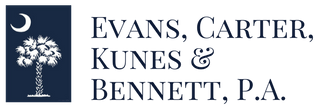Although statistics indicate over half the people in this country die without Wills, those statistics do suggest that the other one-half does engage in some sort of estate planning! What is estate planning and what should you expect from your experience as you engage in estate planning? Although most people tend to associate the term “estate” with death, under the English common law system, the term estate represented the quantity of ownership that an individual had in assets. Thus, an estate might be viewed as a collection of assets over which an individual has the right of disposition. For many of us, these assets are varied ranging in ownership in (1) our homes or other real estate, (2) Individual Retirement Accounts or other retirement benefits, (3) stocks and bonds, (4) life insurance policies and (5) our business interests. Thus, I think your first expectation should be that estate planning should involve a careful inventory of the assets over which you have a power of disposition at that particular time. You and your estate planner will certainly acknowledge that this is a fluid process. The assets that you own inevitably will change during the course of time, but your job as you begin estate planning is to develop as comprehensive a picture of these assets is as possible at that current time.
Second, once you have a clear understanding of the assets over which you have a power of disposition (i.e. your estate), I think you should expect to spend some time learning how our transfer tax system works. By that, I mean you should have a basic understanding of the assets to which the transfer tax system applies, what deductions, exemptions and exclusions exist which allow you to preserve as much as the asset base which you have worked to develop as is possible. In this country, we have a gift tax that applies to lifetime transfers and an estate tax that applies to transfers at death and a generation skipping transfer tax that applies to transfers to persons two generations below you. Each tax has different deductions, exemptions, and exclusions used in computing whether or not a tax exists. Part of your expectation should be a current analysis of what transfer taxes you face and what options exist to mitigate those taxes.
Third, you need to develop an understanding about other concepts that are frequently used in sophisticated estate planning such as Trusts and Powers of Appointment. The Trust developed under English common law as a means of segregating the ownership of property from the benefits derived by owning the property. In the U.S. today, the Trustee is technically the owner who holds legal title for the benefit of the beneficiaries – those persons or entities whom the creator of the Trust wishes to benefit. Trusts have many and varied uses and can be an integral part of sophisticated estate planning. Powers of Appointment can be used to allow someone else to fine tune your planning decisions. For example, frequently if a parent happens to die at a young age, the surviving parent may find that, as children age, what had initially been considered appropriate planning may need to be modified. Through a power of appointment, one can delegate authority to make such changes.
Fourth, you should expect that your estate planning will probably involve some fairly complex documents and you will need to spend some time studying the concepts employed in preparing the documents. Ask questions about what you do not understand, but recognize that at some point, you may have to accept the judgment of your professional advisors on very technical matters.

